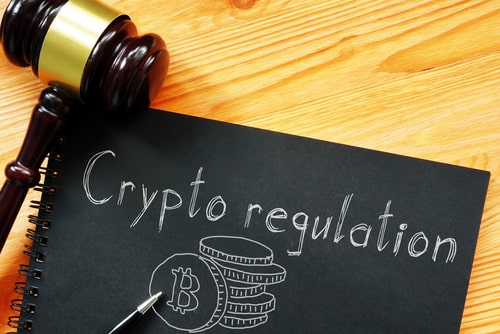Kitco News
Share this article:
(Kitco News) U.S. lawmakers tried to get to the bottom of the Securities and Exchange Commission (SEC) chair Gary Gensler’s definition of what differentiates Bitcoin from other cryptocurrencies.
During Thursday’s testimony before the U.S. Senate Banking Committee, Gensler faced some pointed questions regarding what makes Bitcoin not a security, with some lawmakers zeroing in on the aspect of decentralization. Gensler’s aggressive stance on cryptocurrency oversight excludes the world’s largest cryptocurrency.
The SEC has previously cited the Howey Test to determine whether a crypto token is a security or not.
The test refers to the U.S. Supreme Court case for determining whether a transaction constitutes an “investment contract” and, therefore, should be considered a security, often used for crypto. Under it, an investment contract is an investment of money by entrepreneurs in a common enterprise with an expectation of profits from the efforts of others.
In the past, Gensler stated that Bitcoin is not a security, while other SEC members have been quoted as saying that Ethereum is also not a security.
To better understand Gensler’s thinking, which is yet to be defined clearly, lawmakers such as Pennsylvania Senator Pat Toomey zeroed in on the definition of “a common enterprise.”
“Is centralization necessary to constitute a common enterprise?” Toomey asked Gensler. Gensler responded: “Common enterprise [is when] you are relying on a group of individuals.”
Bitcoin is different because there is “no group of individuals in the middle.”
Gensler avoided using the terms centralization/decentralization. The SEC looks for a common enterprise, which could be a developer who is betting and counting on people. “Even if a token is on a thousand computers, it is [more] about a group of developers in the middle,” Gensler explained.
On crypto regulation more broadly, Gensler noted that if the U.S. ends up with multiple federal agencies defining what security is, it will undermine the SEC’s goals.
“Of the nearly 10,000 tokens in the crypto market, I believe the vast majority are securities. Offers and sales of these thousands of crypto security tokens are covered by the securities laws, which require that these transactions be registered or made pursuant to an available exemption,” Gensler testified. “Given that most crypto tokens are securities, it follows that many crypto intermediaries — whether they call themselves centralized or decentralized (e.g., DeFi) — are transacting in securities and have to register with the SEC in some capacity.”
For Kitco News
Interactive Chart
Kitco
Connect
Tools
We appreciate your feedback.
How can we help you? 1 877 775-4826
Drop us a line info@kitco.com


